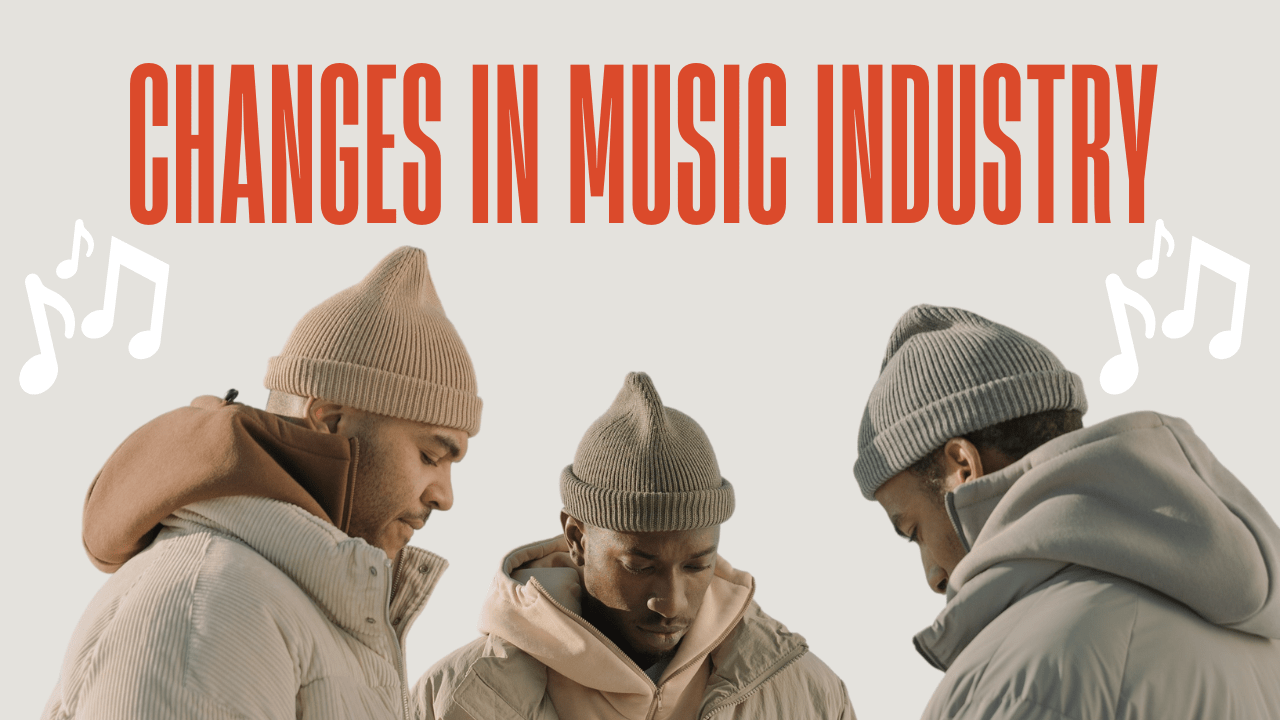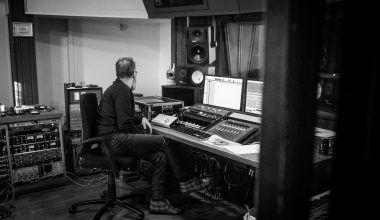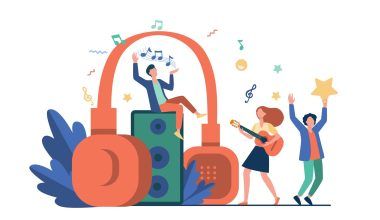The music industry is changing fast. For artists, keeping up with these changes is important to stay successful. This blog will explore the changes in the music industry and how they are shaping the future of music.
The Shift to Digital Music Distribution
One of the biggest changes in the music industry is the move from physical to digital distribution. In the past, artists relied on CDs or vinyl records to share their music. Now, digital platforms like Spotify, Apple Music, and YouTube have taken over.
Digital distribution gives artists many benefits. They can reach a global audience without needing physical copies of their music. Artists also get real-time data on how their music is performing. This helps them make better decisions about their careers.
However, digital distribution has its challenges. With so much music released every day, standing out is tough. That’s why marketing and promotion are more important than ever.
The Evolution of Digital Platforms
Digital platforms are always changing. They offer new ways for artists to connect with their audience. For example, Spotify’s Countdown Pages allow artists to build excitement before a new release. Fans can pre-save songs and access exclusive content. This not only boosts promotion but also provides insights into how well a song might do before it’s even released.
Platforms like Apple Music and YouTube are also improving their algorithms. These changes help users discover new music more easily. This evolution is a big driver of changes in the music industry, making it more competitive and dynamic.
The Role of AI in Music Production
AI is another major change in the music industry. It’s being used in many parts of music creation, from writing songs to mastering tracks.
AI mastering makes it easier for independent artists to produce high-quality music without paying for expensive studio time. AI tools analyze tracks and make adjustments to enhance sound quality.
It can show what types of songs are likely to become popular. This allows artists to tailor their music to fit audience preferences, which can boost their success.
AI in Music Composition
AI is not just for mastering; it’s also changing how music is composed. Tools like AIVA and Jukedeck can create original music. These tools help artists experiment with new sounds and styles.
But AI in music composition raises questions about creativity. AI can write music, but many believe it lacks the emotional depth that comes from human experience. So, while AI can assist in music creation, it doesn’t replace the human touch.
Streaming Services and the New Economy of Music
Streaming services have dramatically changed the music industry. Platforms like Spotify and Apple Music have shifted the focus from buying music to streaming it.
In this new music economy, artists earn money based on the number of streams their songs get. While this has made music more accessible, it has also raised concerns about how artists are paid. The payout per stream is often low, so only the most popular artists earn significant income from streaming.
The Influence of Playlists on Streaming Success
Playlists are crucial to an artist’s success on streaming platforms. Being added to a popular playlist can significantly boost an artist’s streams and visibility.
Curated playlists on platforms like Spotify and Apple Music have become key to discovering new music. For artists, getting on a major playlist is as important as radio play used to be.
However, the competition to get on these playlists is fierce. Curators receive countless submissions, making it tough for new artists to get noticed. To improve their chances, artists need to produce high-quality music that fits the playlist’s theme and resonates with listeners.
Social Media and Artist Promotion
Social media has become a must-have tool for artists. It’s a big part of the changes in the music industry. Platforms like Instagram and YouTube allow artists to connect directly with fans. They can share their creative process and promote their music.
However, managing social media can be time-consuming. Many artists now use social media management services to maintain a consistent online presence. These services help artists engage with their audience effectively.
The Rise of Influencer Collaborations
Influencer collaborations are another growing trend in social media that is impacting the music industry. Influencers with large followings can introduce artists to new audiences by promoting their music. These collaborations might involve influencers using an artist’s song in their content or creating specific posts to promote the artist.
For example, a influencer might create a dance challenge using a new song, encouraging followers to participate and share their own videos. This can lead to a viral trend, boosting streams and visibility for the artist. As social media continues to evolve, these collaborations are becoming an essential part of music promotion strategies.
Changes in Music Copyright and Royalties
As the music industry changes, so do the rules about copyright and royalties. One of the most significant changes in the music industry is the move toward more transparent royalty models. With digital distribution, tracking and collecting royalties has become more complicated. This has led to calls for more fairness and transparency.
New technologies like blockchain could help solve these problems. Blockchain can create a transparent and decentralized system for tracking music rights and distributing royalties. This ensures that artists get paid fairly for their work.
The rise of global music collaborations has also highlighted the need for worldwide standards in royalty distribution. Artists need to understand how different countries’ copyright laws affect their earnings from international streams.
The Impact of Copyright Infringement
Copyright infringement has always been a concern in the music industry. However, the digital age has made it even more common. With music easily shared online, unauthorized use of copyrighted material has increased. This has led to more copyright infringement cases as artists and record labels try to protect their work.
To fight this, platforms like YouTube have introduced Content ID systems. These systems automatically detect and flag copyrighted material. Still, they are not perfect, and many artists struggle to protect their work. As the music industry continues to adapt to the digital age, fighting copyright infringement will remain a challenge.
The Evolution of Live Performances
Live performances have always been important in the music industry, but they are changing. The COVID-19 pandemic accelerated the growth of live streaming concerts, a trend that continues even as in-person events return.
Live streaming lets artists reach a global audience without traveling. It also allows for more interactive experiences, like real-time chats and virtual meet-and-greets.
But live streaming has its challenges. To create a professional and engaging experience, artists need good equipment and may need to work with professionals. Creating a compelling live stream takes time and effort.
Hybrid Concerts: The Future of Live Music
Hybrid concerts, which combine in-person performances with live streaming, are becoming more popular. These concerts allow artists to reach both a physical audience and online viewers. Hybrid concerts offer several advantages, including more revenue opportunities and the ability to connect with fans who can’t attend in person.
For instance, an artist might perform in a city while streaming the concert live to fans worldwide. This approach expands the artist’s reach and gives fans more ways to enjoy the music. As technology improves, hybrid concerts are likely to become a regular part of the live music experience.
The Future of Music: What Lies Ahead?
The changes in the music industry are ongoing, and more innovations are on the horizon. Here are some trends to watch:
- Virtual Reality (VR) Concerts: As technology advances, VR concerts are becoming more feasible, offering fans an immersive experience that feels like a real live event.
- AI-Generated Music: AI is already used in music production, and the future might see AI creating entire songs on its own. This raises new questions about creativity and ownership.
- Sustainable Touring: With growing concern about the environment, artists and promoters are looking for ways to make tours more sustainable, like reducing carbon footprints and using eco-friendly materials.
- Blockchain and Smart Contracts: Blockchain could change how music rights and royalties are managed, offering a more transparent and efficient system for artists.
- Diversification of Revenue Streams: As the music industry becomes more digital, artists will need to find new ways to earn money, such as through live performances, brand partnerships, and merchandise sales.
The Importance of Adaptability
In a fast-changing industry, adaptability is key. Artists who can embrace new technologies and trends, while staying true to their creativity, are more likely to succeed. The future of music will be shaped by those who can navigate the complexities of the digital age and find new ways to connect with their audience.
Conclusion
The changes in the music industry are reshaping how music is made, distributed, and enjoyed. For artists, staying informed and adaptable is essential to thrive in this ever-evolving environment. Whether embracing new technologies, exploring different revenue streams, or connecting with fans in creative ways, the future of music offers exciting opportunities for those ready to grow and evolve.
For further reading, explore these related articles:
- The Role of a Business Manager in the Music Industry: A Comprehensive Guide
- AI in the Music Industry: Revolutionizing Creativity and Production
- How to Create a Music Mashup: A Step-by-Step Guide
For additional resources on music marketing and distribution, visit Deliver My Tune.






